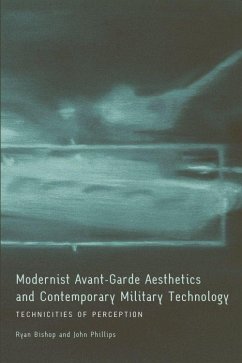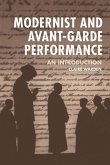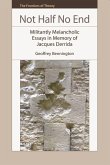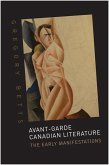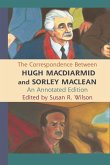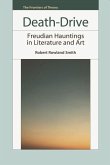In this book, mechanical and electronic technologies forge connections between two apparently unrelated and chronologically disparate fields of production: today's state-of-the-art military technologies and the experimental art, music, and writing of the late nineteenth and early twentieth centuries. The vast surveillance and killing machines of the twentieth and twenty-first centuries found both resources and resistance in the work of early avant-garde poetics. Modernist aesthetics addressed the conditions of possibility that are most dramatically actualized by contemporary military technology, which both appropriates and combats a technology of the senses. This book shows how certain artworks foreshadow modern technologies in unforeseen and incalculable ways, from Mina Loy and James Joyce to Marcel Duchamp and H.G. Wells, and performs extended readings of weapons systems, attack helicopters, and targeting technologies.
Modernist Avant-Garde Aesthetics and Contemporary Military Technology Technicities of Perception Ryan Bishop and John Phillips An intelligent, imaginative, wide-ranging and lucid work. It marks a genuine move forward for the application of deconstruction to cultural studies. And what is especially remarkable about the book is its stunning range of examples and cases, which include Finnegans Wake, Transformer toys, Malaysian gothic thrillers, poems by Keats and Blake, the war in Bosnia, ventriloquism, diaspora and the Cold-War, postcolonial formations in South East Asia. Professor Simon During, Department of English, Johns Hopkins University A richly fascinating, very wise book which launches a brave, telling, and at times, devastating cultural critique of the military-industrial complex. The arguments which praise the modernist avant-garde for its prescience and also its techniques of resistance to war technology are startling, refreshing and brilliant. Professor Adam Piette, School of English, University of Sheffield This book analyses the operation of current state-of-the-art military technology and the experimental art, music and writing of the late nineteenth and early twentieth century. Modernist aesthetic renders clearer the operations of the vast surveillance and killing machines of the twentieth and twenty-first centuries. A basic aim of visual technologies is to collapse the sphere of perception with that of the perceived object. Modernist aesthetics, working the same terrain, shows that there always remains an irreducible element of time and space. Military technology tends towards the impossible goal of eliminating this dimension, while modernist aesthetics exploits it. Placing military operations alongside modernist aesthetics reveals the civic sphere suspended between two incompatible desires. Through close readings of the art and writing of Djuna Barnes, Joseph Conrad, Marcel Duchamp, James Joyce, Mina Loy, Stéphane Mallarmé,
Hinweis: Dieser Artikel kann nur an eine deutsche Lieferadresse ausgeliefert werden.
Modernist Avant-Garde Aesthetics and Contemporary Military Technology Technicities of Perception Ryan Bishop and John Phillips An intelligent, imaginative, wide-ranging and lucid work. It marks a genuine move forward for the application of deconstruction to cultural studies. And what is especially remarkable about the book is its stunning range of examples and cases, which include Finnegans Wake, Transformer toys, Malaysian gothic thrillers, poems by Keats and Blake, the war in Bosnia, ventriloquism, diaspora and the Cold-War, postcolonial formations in South East Asia. Professor Simon During, Department of English, Johns Hopkins University A richly fascinating, very wise book which launches a brave, telling, and at times, devastating cultural critique of the military-industrial complex. The arguments which praise the modernist avant-garde for its prescience and also its techniques of resistance to war technology are startling, refreshing and brilliant. Professor Adam Piette, School of English, University of Sheffield This book analyses the operation of current state-of-the-art military technology and the experimental art, music and writing of the late nineteenth and early twentieth century. Modernist aesthetic renders clearer the operations of the vast surveillance and killing machines of the twentieth and twenty-first centuries. A basic aim of visual technologies is to collapse the sphere of perception with that of the perceived object. Modernist aesthetics, working the same terrain, shows that there always remains an irreducible element of time and space. Military technology tends towards the impossible goal of eliminating this dimension, while modernist aesthetics exploits it. Placing military operations alongside modernist aesthetics reveals the civic sphere suspended between two incompatible desires. Through close readings of the art and writing of Djuna Barnes, Joseph Conrad, Marcel Duchamp, James Joyce, Mina Loy, Stéphane Mallarmé,
Hinweis: Dieser Artikel kann nur an eine deutsche Lieferadresse ausgeliefert werden.

